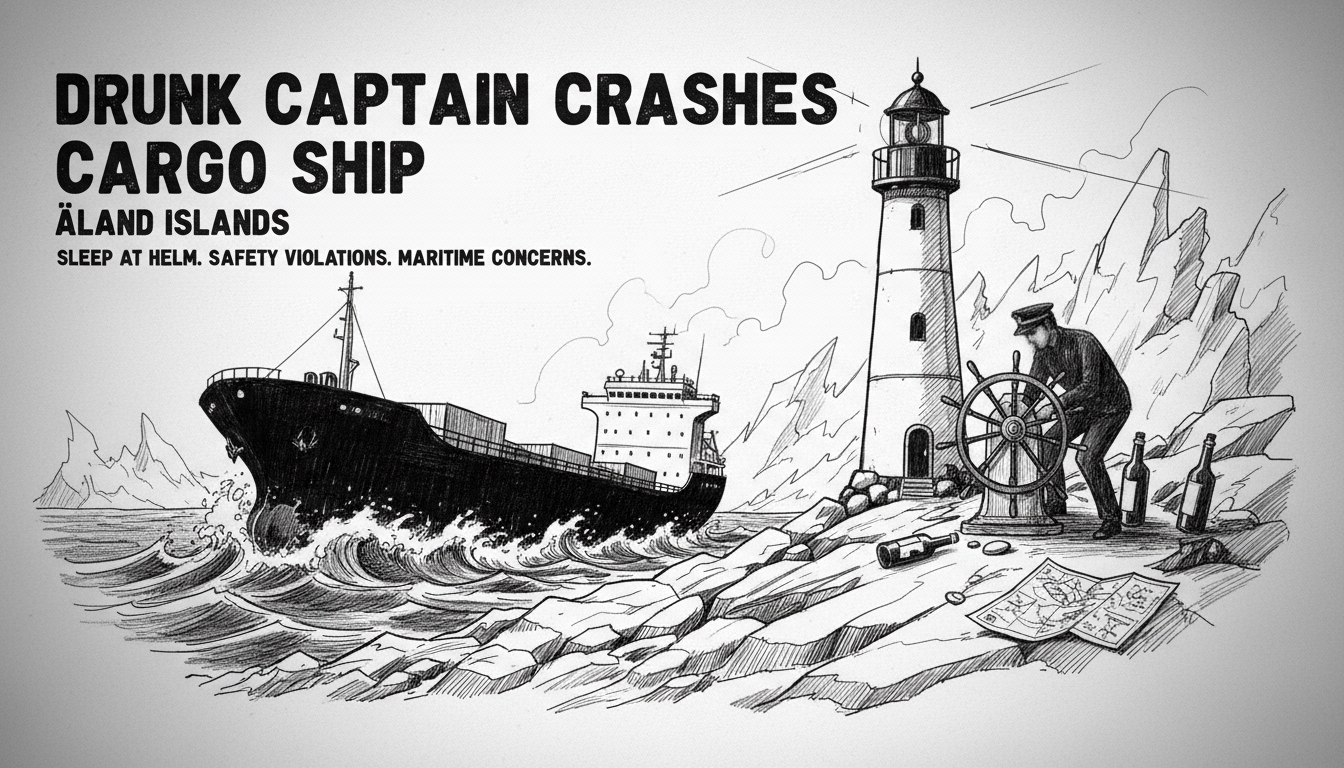A cargo ship captain received a suspended prison sentence after crashing his vessel while intoxicated and falling asleep at the wheel. The incident occurred in the Åland Islands archipelago during the third quarter last year.
The 38-year-old man from Porvoo was sentenced to 60 days of conditional imprisonment for serious endangerment of traffic safety. The maritime court found him guilty of neglecting the ship's seaworthiness and failing to maintain proper ship documents.
The cargo vessel Leonie ran aground on rocky shores near Vårdö in the early morning hours. The ship was transporting grain from Godby harbor in Åland to Naantali on the Finnish mainland. It never reached its destination.
The acting captain, serving as watch officer, had ordered another crew member away from the helm during his shift. This decision proved disastrous because the officer was not fit for duty. He had failed to get proper sleep in port due to loading noise and later succumbed to fatigue.
Maritime conditions appeared favorable at the time of the accident. The sea was nearly calm with good visibility and no other vessels in sight. The aging ship maintained a steady speed of seven knots on its course.
Around 6 a.m., the watch officer fell asleep at the helm. No other crew members were present to assist or monitor the ship's progress. One sailor slept on the bridge sofa while another rested in his cabin.
The unmanned vessel traveled off course for approximately 12 minutes, covering over three kilometers before striking the Alörarna islets. The impact was substantial enough that the sleeping officer struck his head on the radar display. Remarkably, none of the three crew members sustained injuries.
The Finnish Border Guard launched an investigation that revealed the officer's intoxication. Several hours after the crash, he blew 0.39 promille on a breathalyzer test. Authorities estimated his blood alcohol level had been substantially higher at the time of the accident.
Alcohol consumption formed part of the provincial prosecutor's case for serious endangerment of traffic safety. The officer admitted to the events but contested the severity of the charges, arguing no one was actually at risk of injury.
The defendant acknowledged additional regulatory failures. His watch officer certificate had expired, along with his required medical certificate for seafarers. He also admitted the ship's logbook had not been properly maintained, though he updated all documents shortly after the grounding.
The Åland District Court's maritime division convicted the officer on all charges. Judges determined he created serious danger both for his crew and potential other waterway users.
The spring sentence has not gained legal force because the officer appealed the decision. His appeal encountered procedural complications when the district court provided incorrect appeal instructions.
Åland District Court falls under the Turku Court of Appeal's jurisdiction for most matters. However, all maritime cases must be appealed directly to Helsinki Court of Appeal. The Turku court returned the case to the lower court with instructions to provide the correct appeal address.
This case highlights ongoing challenges in maritime safety enforcement across the Nordic region. Finland's archipelago waters present particular navigation risks, especially when combined with human error. The incident raises questions about alcohol policies and watchkeeping standards aboard commercial vessels operating in sensitive marine environments.
The relatively light sentence reflects Finland's approach to first-time offenders in transport safety cases. Still, the court emphasized the serious nature of operating a commercial vessel while intoxicated. The case serves as a cautionary tale for shipping companies and crew members throughout the Baltic Sea region.

